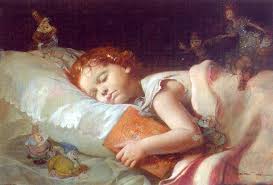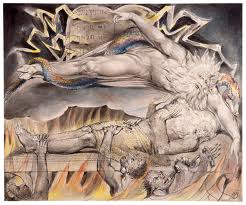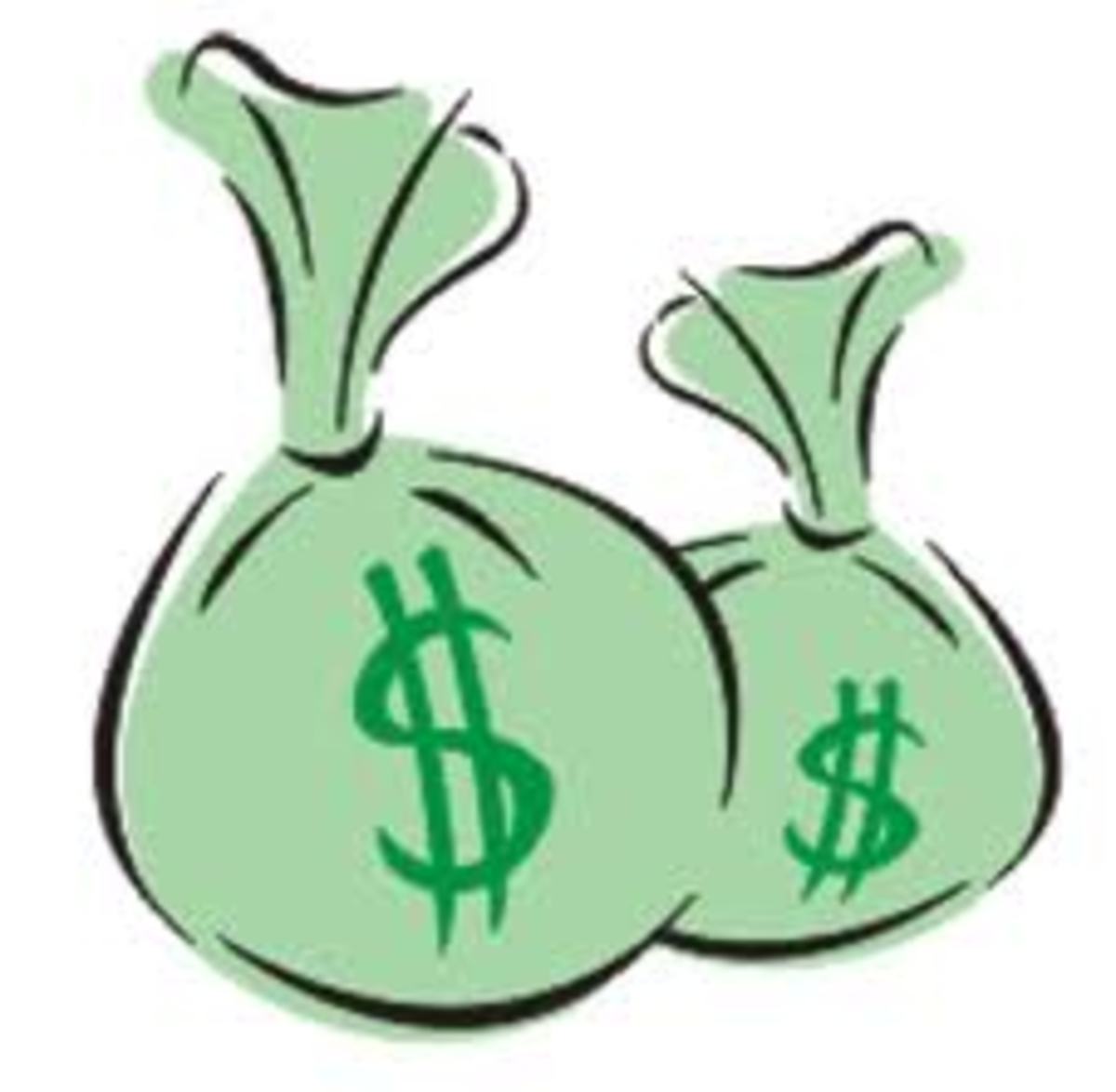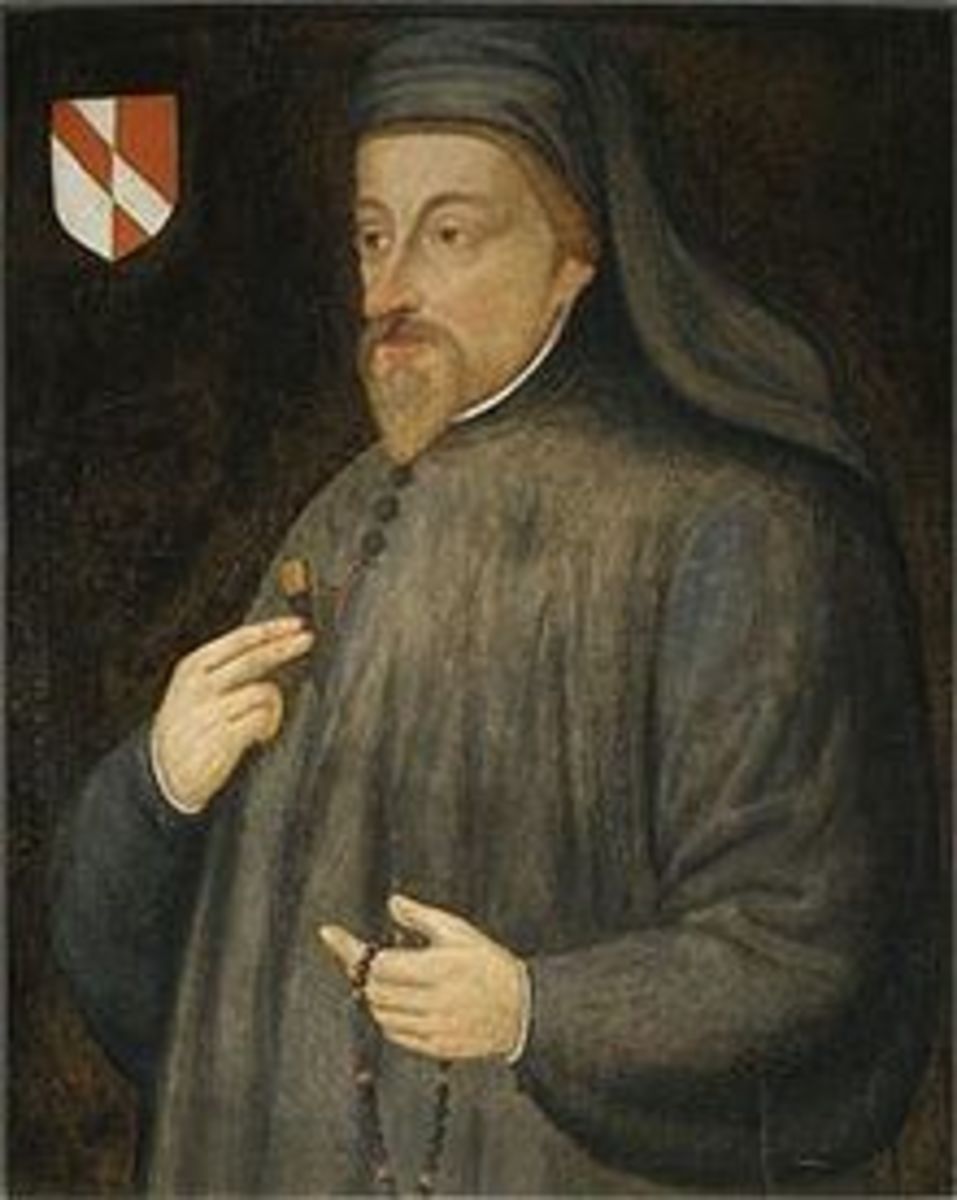The Importance of Dreams and Fantasy

“We are not hypocrites in our sleep.” – William Hazlitt
Everyone dreams, even if the dreams can’t be remembered. Studies show that sleep deprivation and therefore, dream deprivation can lead to psychosis and in cats and rats even death. Chickens before they are hatched dream too , as do babies and animals. Dreams are, in fact, necessary for mental health and equilibrium, perhaps because they let us be us. According to the famous psychiatrist, Carl Jung, our psyche seeks to have a conversation with us, and to ignore them is to court disaster. Dream interpretation, he says is necessary to the process of becoming whole and it has great potential as a tool for creativity and healing.
Authors and Artists Inspired by Dreams
Often solutions to problems and ideas for inventions and artistic expression have bubbled up to the surface of consciousness through dreams. The poet William Blake found much of his inspiration in dreams, as did the surrealist artist Salvador Dali whose paintings seem like dreamscapes. The author Robert Louis Stevenson got the idea for Dr. Jekyll and Mr. Hyde from a dream and so did inventor Elias Howe for the sewing machine. The list goes on.
Lucid Dreams
Have you ever had a dream where you have been aware of dreaming? In this type of lucid dream, your awareness allows you to control your actions, emotions and the outcome of the dream. I have often escaped murder and mayhem in this way! A lucid dream is pretty rare and is characterized by bright light, heightened colours and intense emotions, flying and a sense of liberation or exhilaration. If you can dream lucidly, say researchers, you are at peace with your life. What’s more, it is not new. The earliest recorded mention of a lucid dream dates back to eighth century Tibetan yoga practices.
How to Remember Your Dreams
But how do you make sure you remember your dreams? Since the details of most dreams fade within five to ten minutes, I find that writing them down as soon as you get up is important. Also, in my experience, when I lie down on my right side (which puts a bit of pressure on the right side of my brain), I am able to get flashes of my freshly forgotten dreams. Try it. You’ll discover more than you know about yourself, your surroundings and your creative abilities.
Daydreaming and Fantasizing
It was Albert Einstein who said, ‘Imagination is more important than Knowledge.’
As you sit in your office staring through the window at the walls of other office buildings do you in your mind’s eye replace them with a rich canopy of trees you can stroll under? Do you see yourself riding a pure white thoroughbred, the wind in your hair? Do you perhaps spin and leap through the air, the perfect ballerina when you listen to the ethereal music of Tchaikovsky’s ‘Swan Lake’?
Keeping the Child in You Alive
Or does this sort of daydreaming strike you as a waste of time and child’s play? Well, it is child’s play. Fantasy is after all, the natural realm of a child. The child you once were and hopefully still are in some ways. Watch the most practical ten year old and you’ll notice how she can be herself and someone else at the same time. She can rule over exotic kingdoms, fly to Peter Pan’s Neverland and still be aware of who she is in this world. And who’s to say that these other worlds are not as real as this one? The mind creates its own reality, and often through fantasy.
Daydreaming Stimulates the Imagination
Pediatricians, child psychologists and our own experiences tell us that this sort of fantasizing or daydreaming is not only normal, it is desirable. It stimulates the imagination, feeds creativity, relaxes the nerves and refreshes body and spirit. It is, in fact, the ultimate holiday for the spirit. So why grow out of it? Research indicates that we retain our ability to fantasize, but tend to devalue it in the face of the ‘real world’ of pressing responsibilities and commitments that plague adulthood.
There are countless books out there on how to fantasy can improve your sex life and how daydreams can increase your earning power and sure, they do work some of the time, but let’s not look down our noses at fantasies that can’t be turned to practical advantage. It would be a pity to deny that part of ourselves that seeks pleasure for its own sake.
Jerome L. Singer, Ph.D., a professor of psychology and co-author of the book on the subject, ‘Mind-Play’ says: “In the way art enhances reality, our fantasies enhance our own reality and enrich our experience.”
So the next time you feel you’re slipping into a daydream, don’t brush it away. Revel in it and be glad that you can still connect with the innocence of your childhood and discover your other selves waiting to be found.


Ancient Beliefs about Dreams and Sleep Cycles
The ancient Egyptian Chester Beatty papyrus which dates back to 2000 BC is a treatise on dream interpretation. One of the methods is the contrary meaning of dreams. For instance, if you dream about birth, it could well mean death. According to all religions (primitive and current) dreams were of divine origin – the gods connecting with us. The Babylonians and the Greek also believed in dream interpretation, although the philosopher Aristotle dismissed the idea of the gods connecting with us via dreams. The Babylonians believed that dreams came from the underworld and they had a dream demon called An-Ze-Qar.
While the Christian Church likened divination through dreams to witchcraft, dream interpretation was popular during the medieval era and many instances of it are reported in the Old Testament such as the Pharoah’s dream interpreted by Joseph. And despite the rumblings and grumblings of the Church, several saints such as Francis of Assisi and St. Dominic were “called” to their vocation in their dreams.
Healing Dreams of Aesculapius
Ailing Greeks would spend a night or two in the Temple of Aesculapius, the “god” of healing, to stimulate dreams which would reveal to them the cure for their disease. Today in Athens in the Temple of Aesculapius, you can still see some of the votive tablets offered by those who were healed.
It is now believed that Aesculapius was a historical personage, a highly skilled physician mentioned in The Iliad written in 8th century BCE, who was elevated to the divine status because of his influence on medicine at the time. Temples which were also hospitals, were built to him all over Greece.
In the 2nd century, The Roman Artemidorus of Ephesus had a rather modern view of dreams. He believed these were simply the continuation of the day’s activities. His system of dream interpretation was the most comprehensive until Sigmund Freud came along.
Dreams Reveal our True Selves and Our Health
Carl Jung believed that one could gain a deeper understanding of oneself through dreams. According to this great thinker, our psyche speaks to us through dreams. Dreams inform us about those parts of ourselves or our lives that need our attention. Symbols often appear in dreams, such as the archetypes mentioned by Jung. The horse, for example, is the archetype of the animal life in the body according to him. If one dreams of injury to a horse, it can signal serious illness. Jung claimed that the right interpretation can only come from the dreamer.
Dreams can prepare us for death. Those who are terminally ill may dream of going through doorways or walking into beautiful gardens and the like.
Dreams can Foretell the Future
Dreams can sometimes foretell the future. I myself dreamed of a shrouded figure running around our ancestral home n the morning of a relative’s death.
Why are Some Dreams So Bizarre?
Dreams are a medley of all sorts of things. This is because the cortex area of the brain which manages higher thought and vision tries to make sense and put into order the signals it gets from the firing neurons located in the brain stem. Our memories are interwoven into these dream stories.
Dreams and Sleep Cycles
The fact that there are two distinct sleeping states, one with dreams and the other without, was already known in ancient India as the Hindu treatises written 3000 years ago reveal. The normal seven-hour sleep is divided into cycles of sixty to ninety minutes, each of which has its REM period (Rapid Eye Movement) during which we dream. This is the time when new skills are mastered. Each period of dreaming is longer than the previous one which lasts for about five to ten minutes and occurs around ninety minutes from the instant we fall asleep. The longest and final dream period is forty minutes. When we wake up, it is usually this dream that we recall. This memory fades after five to ten minutes unless we dwell on the dream or write it down.







